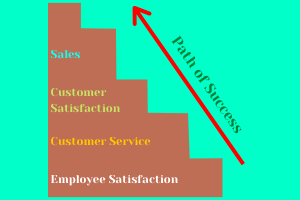With BioNTech-Pfizer, Moderna, Vaxart, and Bharat Biotech leading the race of vaccination, other pharmaceutical companies are at risk of being left behind. What is the trade secret?
Continuous Improvement – the key to pharma success.
The foundation of the effective implementation of continuous improvement (or process improvement) is consistency. Therefore, integrating tools like Lean Manufacturing and Kanban is only half the battle. The victory lap starts when a company weaves it into the fabric of its culture. The previous decade marked an unswerving focus on process improvement of the production cycle. However, a more holistic outlook is needed today.
1. Streamlining Operations via Automation
 This pandemic has seen reduced staffing and a hike in remote-working within the pharma industry. Therefore, efficient streamlined operations are a necessity in the pharma industry. Redundant operations trigger waste production and unnecessary expense. Moreover, simply outsourcing services is a thing of the past.
This pandemic has seen reduced staffing and a hike in remote-working within the pharma industry. Therefore, efficient streamlined operations are a necessity in the pharma industry. Redundant operations trigger waste production and unnecessary expense. Moreover, simply outsourcing services is a thing of the past.
The latest modus operandi is integrating automation and robotics. Combining both into one production cycle eliminates wasted effort, enhances product quality, and reduces contamination. Its advantage is its user-friendliness and high rate of dependability.
2. Enterprise Resource Planning (ERP)
 Industry 4.0 has propelled the pharma industry to apply software practices and AI across all operations. Hence, stricter regulatory guidelines require companies to adhere easily to these changes. The one-way street to success is the usage of IT technologies like ERP. The benefits of this customized cloud enterprise include:
Industry 4.0 has propelled the pharma industry to apply software practices and AI across all operations. Hence, stricter regulatory guidelines require companies to adhere easily to these changes. The one-way street to success is the usage of IT technologies like ERP. The benefits of this customized cloud enterprise include:
- Providing centralized access to data regarding production costs and timing.
- Helps companies adhere to regulatory compliances. For instance, FDA 21 CFR Part 11 requires the steps of drug production to be recorded. Hence, to facilitate this process, ERPs provide auto-updated electronic records.
- Real-time tracking of deliveries and inventory management.
3. From Competition to Cooperation
 Cooperation and collaboration call for pharma companies to be open to change. Furthermore, they need to develop flexible work cultures. In 2020, AstraZeneca collaborated with MiNA, and Pfizer with BioNTech to develop the COVID-19 vaccine. What is the reason behind these collaborations?
Cooperation and collaboration call for pharma companies to be open to change. Furthermore, they need to develop flexible work cultures. In 2020, AstraZeneca collaborated with MiNA, and Pfizer with BioNTech to develop the COVID-19 vaccine. What is the reason behind these collaborations?
Pharma giants have a history of being ruthless competitors with limited outsourcing. However, today’s paradigm shift has pushed companies to change their approach. They now need to outsource research activities to educational and research institutes. Collaborations ensure that 2 services share each other’s benefits and eliminate the limitations. Additionally, this helps them remain flexible, and invest important resources elsewhere. A wider range of perspectives ensures the growth of the entire healthcare industry.
4. Customer Satisfaction
 “Customer is King”. This is the age-old business mantra that governs continuous improvement in pharma companies. The role of customers is now more inclusive and influential. They bank on cold, hard data to purchase medicines. Hence, the successful implementation of continuous improvement relies on the customer-company relationship. Additionally, a transparent open dialogue must be established. This will solidify trust and reinforce their credibility.
“Customer is King”. This is the age-old business mantra that governs continuous improvement in pharma companies. The role of customers is now more inclusive and influential. They bank on cold, hard data to purchase medicines. Hence, the successful implementation of continuous improvement relies on the customer-company relationship. Additionally, a transparent open dialogue must be established. This will solidify trust and reinforce their credibility.
The coronavirus has propelled digital consumerism. Therefore, digital marketing must tap into these opportunities. Furthermore, by analyzing customer feedback companies can provide an optimal experience. Hence, an increase in both sales and client satisfaction can be secured.
Personalized experience requires conversation chatbots and digital assistants. They increase user-friendliness and provide patient treatment and tracking. Additionally, consumer patterns can be analyzed. These influence a company’s manufacturing operations and ensure optimal delivery time.
4. Rebuilding Company Culture
“Culture eats strategy for breakfast.” – Peter Drucker
Pharma is working on redefining its culture and image in the minds of clients. Therefore, building trust and transparency is crucial. The stigma of pharma giants being ‘money-minded’ needs to go. A company’s culture relies on the attitudes of its employees. Employee performance is to an organization what a keystone is to a masonry arch. Hence, if your employees are happy, customer service is bound to be impeccable. As a result, customer satisfaction will increase and public perception regarding the pharma industry will change.
The Bottom Line
 Continuous improvement expands beyond the implementation of statistical tools. It is a consistent process that needs to adapt to ever-changing scenarios. Therefore, this realization and implementation are what holds the key to a pharmaceutical company’s success.
Continuous improvement expands beyond the implementation of statistical tools. It is a consistent process that needs to adapt to ever-changing scenarios. Therefore, this realization and implementation are what holds the key to a pharmaceutical company’s success.
